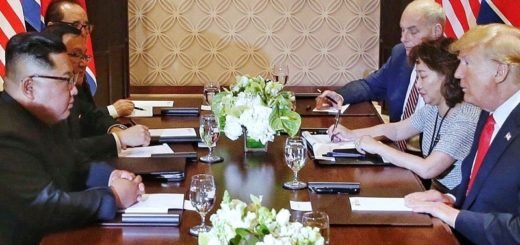Pro-Beijing scholars defended human rights record at UN over ethnic uyghurs

Image Representation/REUTERS
GENEVA – Pro-Beijing scholars brought together by the Chinese government have briskly defended the country’s human rights record as criticism grows over the mass internment of ethnic minority Muslim Uighurs in China’s far west.
In a move indicative of a new public relations push, Chinese officials for the first time hosted journalists to meet with the academics on the sidelines of a U.N.-backed Human Rights Council session in Geneva.
China has faced mounting criticism over a massive security clampdown targeting Uighurs native to China’s Xinjiang region. The new U.N. human rights chief, Michelle Bachelet, this week said monitors should be allowed into the region, and calls have been made in the U.S. Congress for sanctions on some Chinese officials.
Li Xiaojun, director of publicity at the State Council Information Office, touted Beijing’s record, berated alleged failures in the West to counter violence by Islamic extremists and denied any injustices against Uighurs.
“It’s not mistreatment, and it’s the correct thing to do for the Chinese government,” he said. “Maybe it’s the necessary way to deal with Islamic or religious extremism because the West has failed in doing so.”
“Look at Belgium, look at Paris, look at some other European countries,” Li added. “These countries did not deal with religious extremism very well … actually, they are doing that very bad.”
He said his government is placing some people in training centres, insisting they are different from detention centres.
“China wants to seriously to deal with Islamic extremism. It wants to prevent that from spreading to the common people, to the common Muslims in Xinjiang,” Li said.
A number of news organizations, including The Associated Press, have reported on new indoctrination camps in far western China, where detainees have had to disavow their Islamic beliefs, criticize themselves and their loved ones and give thanks to the ruling Communist Party.
On Thursday, the academics chimed in variously to hail the alleged effectiveness of China’s centralized, one-party state, or insist China’s approach to human rights is grounded in the fight against poverty and that efforts will proceed “step-by-step.”
Asked whether they had criticisms of the government’s human rights policies, none offered any.
“Unfortunately, my knowledge is very limited,” said Jingwen Zhu, a professor of law at Renmin University of China Law School, when asked about the Uighurs.
The Kootneeti Beijing Monitor



















